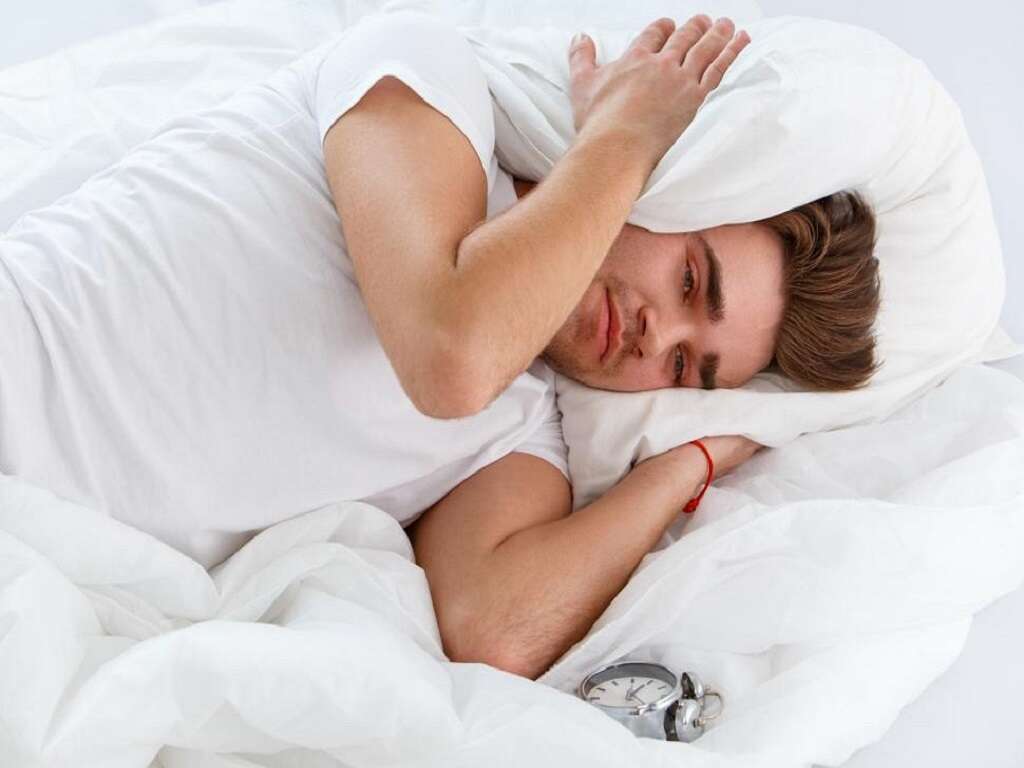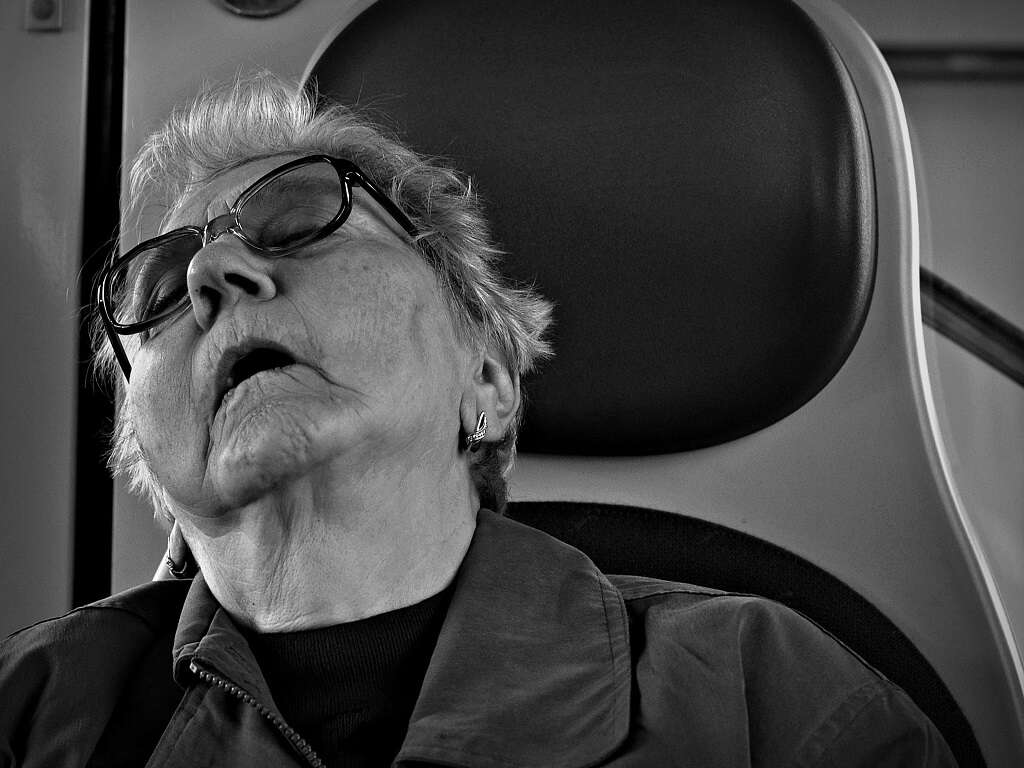10 Exhaustion Symptoms
 Article Sources
Article Sources
- 1. Smolensky M; Milia L; Ohayon M; Philip P. 'Sleep disorders, medical conditions, and road accident risk.' https://www.academia.edu/14993220/Sleep_disorders_medical_conditions_and_road_accident_risk
- 2. Phegley K. 'Consequences of Fatigue and Sleep Deficiency in the Workplace: Implications for the Construction Industry.' Wright State University, Dayton, Ohio, 12-18-2017, https://corescholar.libraries.wright.edu/cgi/viewcontent.cgi?article=1211&context=mph.
- 3. Neckel S. 'Burnout Fatigue Exhaustion An Interdisciplinary Perspective on a Modern Affliction.' ResearchGate, March 2021.
- 4. Flo-Groeneboom E. 'Insomnia, Excessive Sleepiness, Excessive Fatigue, Anxiety, Depression and Shift Work Disorder in Nurses Having Less than 11 Hours in-Between Shifts.' https://www.academia.edu/14689376/Insomnia_Excessive_Sleepiness_Excessive_Fatigue_Anxiety_Depression_and_Shift_Work_Disorder_in_Nurses_Having_Less_than_11_Hours_in_Between_Shifts
- 5. Injury Facts. 'Work-related Fatigue, https://injuryfacts.nsc.org/work/safety-topics/work-related-fatigue/.
Exhaustion is a widespread condition, particularly affecting those who work long hours and experience stress in their professions. It refers to mental and physical fatigue to the point that it interferes with the ability to perform work safely and thoroughly.1Smolensky M; Milia L; Ohayon M; Philip P. ‘Sleep disorders, medical conditions, and road accident risk.’ https://www.academia.edu/14993220/Sleep_disorders_medical_conditions_and_road_accident_risk
A feeling of being under the weather is a common sign of exhaustion, but some of the other symptoms are not as easy to recognize. Feeling physically depleted is often not the most obvious sign of fatigue. These are some of the telltale signs that someone might be suffering from exhaustion.

1. Falling Asleep During the Day
An obvious sign of exhaustion is feeling tired throughout the day. Nodding off intermittently during waking hours, yawning constantly, having trouble keeping eyes open, falling asleep while watching a favorite TV show and even dozing off behind the wheel are all signs of serious fatigue that need to be addressed before injuries result.1Smolensky M; Milia L; Ohayon M; Philip P. ‘Sleep disorders, medical conditions, and road accident risk.’ https://www.academia.edu/14993220/Sleep_disorders_medical_conditions_and_road_accident_risk
To combat these symptoms, be sure to get at least eight hours of sleep every night. If the symptoms persist make an appointment with a doctor as sleep apnea could be the cause of such extreme tiredness.

2. Susceptibility to Colds and Flu
Not getting enough sleep at night and stress can weaken the immune system, and a lack of quality sleep can make it more difficult for the body to protect itself against illnesses such as colds and flu.
The more rundown the body is the more likely it is to become ill, most often leading to an increase in absenteeism from work. Constant bouts of colds and flu could be an indication of not getting sufficient sleep at night.

3. Difficulty Maintaining Focus
Being drained and fatigued can lead to feelings of emotional exhaustion at work and can cause errors to be made - a very serious problem in the medical professions and in professions in which public safety could be at risk.2Phegley K. ‘Consequences of Fatigue and Sleep Deficiency in the Workplace: Implications for the Construction Industry.’ Wright State University, Dayton, Ohio, 12-18-2017, https://corescholar.libraries.wright.edu/cgi/viewcontent.cgi?article=1211&context=mph.
Exhaustion and burnout usually occur over a number of years, and assessing behavior and conduct over a longer period of time could help a person realize whether their condition is temporary or whether it has occurred over a protracted period of time.

4. Difficulty Making Decisions
A difficulty in making decisions could have exhaustion as the root cause. Sleep deprivation can affect higher-level cognitive processing, leading to difficulty in managing time effectively.
Most significantly, research shows a correlation between inadequate sleep and an increase in risk-taking behaviors. A study of sleep-deprived subjects found that they considered their risky behavior safer than they did when they had experienced an adequate amount of sleep. Sleep-deprived workers, therefore, weren’t aware that they were taking greater risks than they would under normal conditions.

5. Self-Medicating
Exhaustion can cause some people to try to compensate for the feeling of being depleted by indulging in unhealthy habits like drinking too much alcohol, smoking and eating junk food.
Self-medicating to get through a stressful period can also involve unhealthy behaviors such as relying on sleeping pills to fall asleep, too many cups of coffee to get through a busy morning at work and needing to de-stress at the end of the day with a few too many glasses of wine.3Neckel S. ‘Burnout Fatigue Exhaustion An Interdisciplinary Perspective on a Modern Affliction.’ ResearchGate, March 2021.

6. Constant Hunger
Experiencing a sudden increase in appetite or a change in the kinds of desired foods could be a sign that something is amiss.
The level of hunger coupled with the types of food cravings can be connected to the amount of sleep a person is getting. When the body is exhausted, it seeks calmness, which is easily accessible through comfort foods high in carbohydrates and fats because they promote the release of feel good chemicals like serotonin and dopamine.

7. Dry Skin and Lips
As the body’s largest organ, the skin can reveal a lot about the state of health of the rest of the body. The effects of not getting enough sleep can easily be seen in skin that is dry and dull.
A lack of sleep produces hormonal imbalances and, in the long run, results in wrinkling of the skin due to a decrease in collagen production which occurs during sleep. Stress can also lead to dry and flaky skin, cracked lips and a lackluster complexion.

8. Struggling to Fall Asleep
It would seem that someone suffering from exhaustion would find it very easy to fall asleep at night. However, exhaustion is actually more likely to lead to sleeplessness.
Without its usual amount of sleep, the body functions atypically, causing changes to the mental state and its circadian rhythm, which is responsible for maintaining a healthy sleep/wake cycle. Exhaustion causes the circadian rhythm to malfunction, making it hard for the sleep-deprived to get the shut-eye that they so desperately need.4Flo-Groeneboom E. ‘Insomnia, Excessive Sleepiness, Excessive Fatigue, Anxiety, Depression and Shift Work Disorder in Nurses Having Less than 11 Hours in-Between Shifts.’ https://www.academia.edu/14689376/Insomnia_Excessive_Sleepiness_Excessive_Fatigue_Anxiety_Depression_and_Shift_Work_Disorder_in_Nurses_Having_Less_than_11_Hours_in_Between_Shifts

9. Digestive Problems
Sometimes, after having made it through a night without any sleep, the insomniac gets up only to find that their stomach is also unsettled. Exhaustion has a major effect on the digestive system, affecting gut bacteria which play an important role in the quality of sleep.
A chronic lack of sleep has a serious effect on the body’s digestive processes and the bacteria in the gut. These imbalances can result in all manner of digestive complaints such as diarrhea, constipation and bloating.

10. Increased Mishaps and Accidents
A lack of sleep can be the cause of a lot of clumsiness. This could be a result of motor skills not performing as they should, lowered concentration levels and reduced alertness.5Injury Facts. ‘Work-related Fatigue, https://injuryfacts.nsc.org/work/safety-topics/work-related-fatigue/.
Studies have found that workers who haven’t slept for 17 to 19 hours have reduced levels of performance and response speeds. This could be the reason for someone spilling their coffee and stumbling to the bathroom every morning, rather than effortlessly performing these simple tasks.











